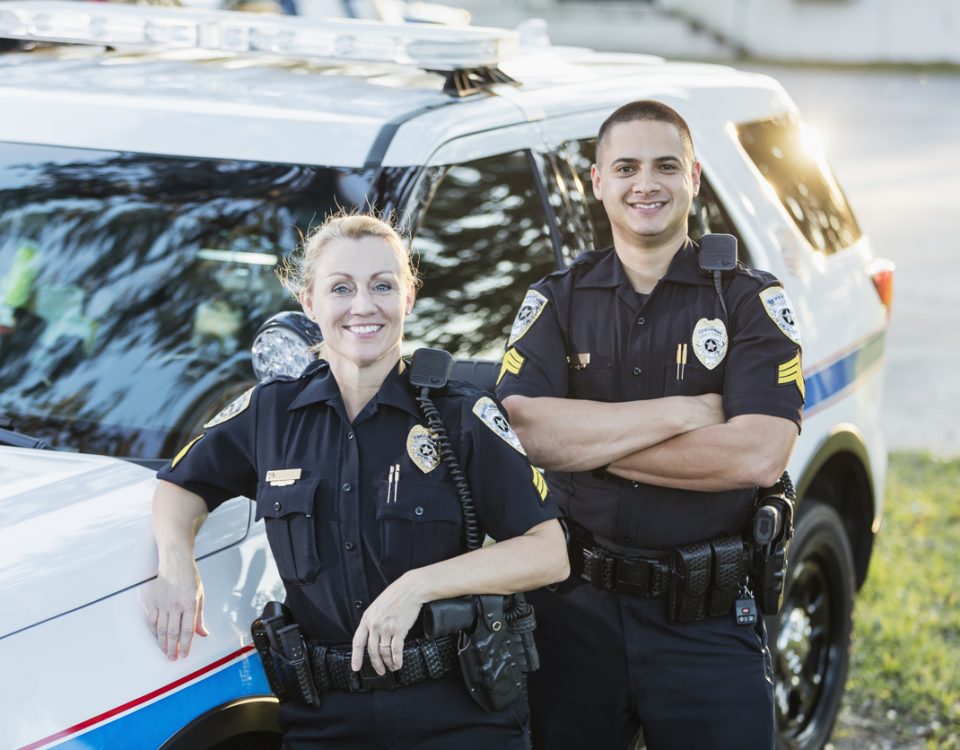Educational Articles
- Filter by
- Categories
- Tags
- Authors
- Show all
- All
- Active Shooter
- Active Shooter Protection
- blog
- Charter School
- Charter Schools
- Company News
- Cyber Security
- Deadly Weapon Protection
- Educational Articles
- Educators Informational
- educators legal liability
- Educators Liability
- Educators Liability and Employment Practices
- Educators Management Liability
- effects on education
- Law Enforcement Liability
- Mobile
- Motion
- Municipal Liability
- Photography
- Police
- Police Professional Liability
- Priest
- Products
- Professional Liability
- Public Official Insurance
- Public Officials
- Public Officials Liability
- Public Sector
- School board liability
- Special Education
- Uncategorized
- All
- Active Shooter
- Active Shooter Insurance
- Active Shooter Insurance FAQ
- active shooter insurance for schools
- Active Shooter Insurance Program
- Active Shooter Preparation
- Active Shooter Protection
- Active Shooter Safety
- active shooters
- Active Shooting Safety
- actve shooter
- addressing police reform
- ADHD
- Age Discrimination
- Anxiety and Depression in Schools
- autism
- bankruptcy
- benefit of field trips
- benefits of problem-based learning
- best
- Blog
- Board
- Body-Cams
- boy only sports
- boy sports
- Building Permits
- bullying
- can social media use benefit law enforcement
- car wash pollution
- car wash water pollution
- cell phone tracking
- Charter School
- Charter School Cybersecurity
- Charter School Differences
- Charter School Diversity
- Charter School Legal Issues
- Charter School Property
- Charter School Reform
- Charter School Special Education
- Charter Schools
- city bankruptcy
- city budgeting
- classroom technology
- classroom technology liability
- Clean water act
- Cloud
- Cloud security
- Code of Conduct
- code of ethics for teachers
- College
- College Admissions
- College Admissions Liability
- College Admissions Scandal
- College Degree Requirement
- college institution insurance programs
- college insurance
- Combating Fatigue
- communicating ethically
- communicating with the media
- Communicating with the Press
- Company News
- Conflict Management
- Conflict Management Tips
- controversy
- Cops
- Coronavirus
- counseling
- coverage
- Coverage Discussion
- COVID-19
- Credit Card Fraud
- Crime Prevention
- css3
- cyber attack
- cyber breach
- Cyber Liability
- Cyber School Liability
- Cyber Security
- cyberbullying
- cyberbullying educator intervention
- cyberbullying intervention
- cyberbullying teacher intervention
- Cybersecurity
- Cybersecurity in Schools
- D&O Insurance
- dangers of labeling students
- Data Privacy
- deadly weapon liability
- Deadly Weapon Liability Protection
- Deadly Weapon Protection
- debate
- defamation
- defamation lawsuits
- definition of public entity insurance
- defunding police
- Department
- design
- Digital Schooling
- Directors and Officers
- Discipline Liability
- Discrimination
- E&O
- Earthquake Safety
- Earthquakes
- eclipse
- Education
- Education Discrimination
- education insurance
- education liability
- education liability insurance
- education liability insurance coverage
- Education Malpractice
- education management
- Education Next
- Education Reform
- Educational
- Educational Articles
- Educational field trips
- educational institute insurance
- Educational institution
- Educational Institutions
- educational insurance
- Educational liability insurance
- Educational Liability. liability for teachers
- educational malpractice
- educational tort law
- Educational trends
- educationi
- educator
- educator code of ethics
- educator insurance
- educator liability insurance
- educator management insurance coverage
- educators
- educators E&O
- Educators Employment Practices Liability
- educators insurance
- Educators Legal Liability
- educators legal liability coverage
- educators legal liability insurance
- Educators Liability
- Educators Liability Insurance
- educators liability protection
- Educators Liability: New Smaller Themed High Schools
- Educators Liability: The Facts of College Data
- Educators management liability
- educators management liability insurance
- educators’ legal liability insurance
- effect of field trips on education
- Elected Officials
- Emergency Safety Drill
- Employee Rights
- Employment Discrimination
- Employment Practices
- Employment Practices Liability
- Employment Practices Liability for professors
- Employment Practices Liability for school board
- Employment Practices Liability for teachers
- Employment Practices Liability Insurance
- encouraging student feedback
- Enforcement
- EPLI
- Errors & Omissions
- Ethical Behavior
- ethical communication public officials
- Evacuation
- Evacuation Procedures
- evolution of classroom technology
- exploring learning methods
- exploring project based learning
- exploring teaching methods
- Expulsion
- Failure to Educate
- fall 2020 school year
- fall school year
- fall school year 2020
- Field Trip
- field trips
- Fight Against Ransomware
- Firearms
- Firearms on campus
- force
- forms
- framework
- Further Your Education
- Future of Schools
- Gallup
- gender discrimination
- gendered sports
- government employee insurance
- Government Officials
- grid
- high school insurance
- high school teacher liability
- html5
- IDEA
- identity theft
- implementing problem-based learning
- improving student engagement
- improving student feedback
- increasing student engagement
- Individual Education Plan
- insurance
- insurance companies
- insurance coverage for public officials
- insurance for police officers
- Insurance for public officials
- Insurance for schools
- insurance for teachers
- insurance programs
- insurnace
- intervening in cyberbullying cases
- k-12
- K-12 liability
- k-9
- k9
- Law
- Law enforcement
- Law Enforcement Liability
- law enforcement liability insurance
- law enforcement officials liability
- law enforcement professional liability
- Law enforcement professional liability insurance
- law enforcement social media
- law enforcement stress management
- learning disabilities
- learning methods
- legal insurance for police officers
- Lew enforcerment
- liability
- liability for high school teachers
- liability for police officers
- liability for professors
- liability insurance for high school teachers
- liability insurance for police officers
- liability insurance for professors
- liability insurance for sheriff
- liability insurance for sheriff officer
- Liability insurance for teachers
- libel in the media
- Lockdown
- Lockdown Procedure
- Louisiana Cyber-Attacks
- Management
- Mandatory Physical Education
- municipal budget planning
- municipal codes
- municipal laws
- municipal liability
- Municipality
- municipality insurance
- municipality liability
- mysql
- New Smaller Themed High Schools
- new tweet
- No Child Left Behind
- Off-Campus Injury
- Off-Campus Lunch
- off-campus lunch accidents
- officer
- officer
- Officials
- Old teaching methods
- online education debate
- online education pros and cons
- online education strengths and weaknesses
- online learning advantages
- online learning disadvantages
- online safety
- PCI
- PCI Compliance
- pgui
- Physical Education
- Physical Education Liability
- Police
- police department liability
- police department social media
- police district
- Police E&O
- Police error and omissions
- Police Fatigue
- Police Injury Rates
- police insurance
- police insurance policies
- police insurance policy
- Police Lawsuits Costly
- police liability
- police liability coverage
- police liability insurance
- police misconduct lawsuits
- Police officer
- police officer liability insurance
- police officer liablity
- police officer safety
- police officer social media
- Police Officers
- Police Professional Liability
- Police Professional Liability Combating Police Fatigue
- Police Professional Liability Insurance
- Police Professional Liability: Policy Fitness & Injury Rates
- Police Professional Liability: South Carolina Limits police liability for dog bites
- police protests
- Police reform
- police social media
- police stress effects
- police stress management
- police stress symptoms
- police training
- police tweet
- police twitter
- policy
- Policy Fitness
- Premises Liability
- Preparing students for the workforce
- preventing directors and officers risks
- Private School
- problem-based learning
- professional
- Professional Governmental Underwriters
- Professional Liability
- professional liability coverage for cops
- Professional Liability for cops
- Professional Liability for deputies
- Professional Liability for Educators
- professional liability for law enforcement
- Professional Liability for police
- Professional Liability for police officers
- Professional Liability for sheriff
- professional liability insurance
- professional liablity
- Professor Liability
- programs
- project based learning method
- project-based learning
- Public
- Public company D&O
- public entity insurance
- public entity insurance definition
- public occicials liability insurance
- public officer liabilities
- public official
- Public Official Ethics
- Public Official Etiquette
- Public Official Insurance
- Public Official Liability
- Public Official liability Insurance
- public officials
- public officials communication
- public officials defamation lawsuits
- Public Officials E&O
- Public Officials EPLI
- Public Officials Errors & Omissions
- Public Officials Insurance
- Public Officials Liability
- public officials liability coverage
- Public Officials Liability Insurance
- Public officials liability insurance coverage
- public personnel insurance
- Public Safety
- Public School
- Public Sector
- Public Sector Cybersecurity
- Public Sector Employee
- Public Sector Insurance
- Public Sector Liability
- Public Shooting
- Public trust
- Public vs. Charter School
- Ransomware
- Ransomware Attacks
- Remote Schooling
- reopening schools
- Richmond municipal liability
- Risk Management
- Safe Spaces
- safety for police officers
- School
- school board
- School Board Discipline
- school board insurance
- school board liability
- school board liability coverage
- School Board Responsibilities
- school counseling
- School Cyber Liabilities
- School Data Privacy
- School Discipline
- School Drill
- School Environmental Safety
- School Guards
- School Injuries
- School Lockdown
- School Safety
- School Safety in 2019
- School Safety Trends
- school violence
- Schooling through a screen
- Sex-based discrimination
- she
- Sheriff
- sheriff department
- Sheriff liability
- Sheriff Professional Liability
- Shootings
- Should teachers intervene in cyberbullying?
- slander & libel
- Smart Cities
- social media
- Social Media Etiquette
- Social Media for Public Officials
- Social Media for Teachers
- social media in law enforcement
- Social Media Liability
- Social Media Monitoring
- Social Media Policies
- Social Media Usage
- solutions
- Special Ed Programs
- special education
- Special Education types
- Specialty schools
- stats
- Student Disability
- Student Injury
- Successful Special needs program
- suing a school for educational malpractice
- Suspension
- Taser Cameras
- teacher
- teacher code of ethics
- Teacher Liability
- Teacher Shortage
- Teachers
- teachers insurance
- teachers liability
- Teaching methods
- Teaching with Technology
- Technology
- Technology in the classroom
- Technology Liability
- Technology Policies
- the benefits of SEL
- the benefits of social emotional learning
- The Facts of College Data
- the importance of stress management
- themeforest
- Therapy Dog Liability
- Therapy Dogs
- tort law
- tort law in education
- tort liability
- traffic stop safety
- traffic stop safety for police officers
- Trends
- types of special education
- Understanding directors and officers risks
- University
- VA
- Vaccinations
- Vaccinations in Schools
- Virginia
- Virginia municipal liability
- virtual classes
- Virtual Classrooms
- virtual learning
- virtual learning benefits
- water runoff
- website
- what is emotional learning
- what is problem-based learning
- what is social learning
- what is social-emotional learning
- when a city goes bankrupt
- wordpress
- Workplace Safety
- zend
- Zoning
November 16, 2020
Categories
Like any workplace, a revolving door of new employees creates stress. This is the same for local police departments looking to retain good police officers and […]
November 9, 2020
Categories
When it comes to police officer training, driving safety and training may not be a top priority, especially compared to de-escalation techniques or weapons training. But […]
October 26, 2020
Categories
In any industry, it’s always a good idea to be improving one’s skills for their specific role. When it comes to a police officer’s role, it’s […]
October 19, 2020
Categories
The business of government, be it local or national, has shifted dramatically in recent years. From more access to information to bigger personalities running for office, […]




